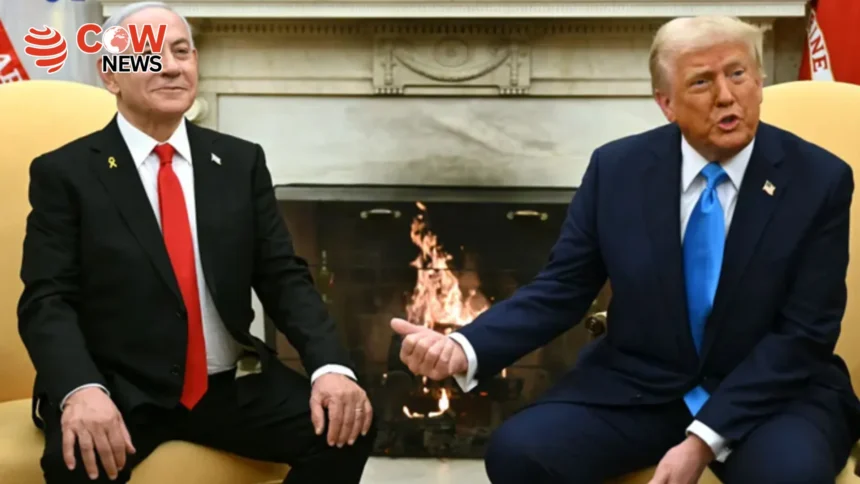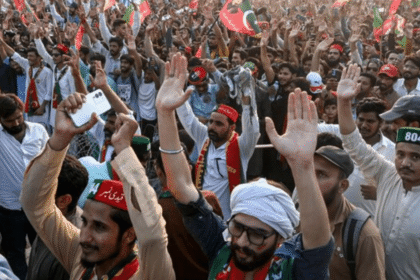Washington( The COW News Digital)In a major statement reflecting the evolving U.S. stance on the Middle East crisis, President Donald Trump has said that the matter of a potential Israeli occupation of Gaza is “up to Israel”, indicating that the U.S. will not interfere in that decision.
During a press briefing at the White House, President Trump was asked about Israel’s reported plans to fully occupy the Gaza Strip. In response, he avoided direct comment, instead emphasizing the humanitarian efforts his administration is undertaking in the region.
“Our focus is on getting more food into the blockaded areas of Gaza,” Trump said. “Beyond that, it’s mostly up to Israel.”
President Trump clarified that Israel would assist in the distribution of food, while Arab nations would contribute financially to support relief operations. He reiterated the urgency of ensuring food security for civilians caught in the conflict, without committing to any position on Israel’s military plans.
The statement comes amid rising tensions following reports that Israeli Prime Minister Benjamin Netanyahu met senior security officials earlier this week to discuss a full military occupation of Gaza. According to Israeli media, Netanyahu has expressed strong support for expanding military operations, including in areas believed to be hiding hostages.
Media outlets also reported that the Trump administration is considering taking direct control over the humanitarian aid operations in Gaza, to ensure faster and more effective delivery of essential supplies.
This development underscores a growing divergence between military strategy and humanitarian priorities in the Gaza conflict. While Israel appears poised to intensify its military actions, the U.S. under Trump seems determined to maintain focus on humanitarian assistance, without dictating Israel’s military course.
Trump’s ambiguous stance is drawing mixed reactions. Critics argue that leaving the occupation decision entirely in Israel’s hands could escalate regional instability, while supporters claim that the U.S. should not interfere with Israel’s sovereign right to defend itself.
Meanwhile, Palestinian leaders and international observers continue to express concern over the humanitarian toll and the risk of mass displacement if Israel proceeds with a full-scale occupation.
As diplomatic channels remain tense and the future of Gaza hangs in the balance, Trump’s remarks have further highlighted the fragile balance between diplomacy, security, and humanitarian responsibility in one of the world’s most volatile regions.







